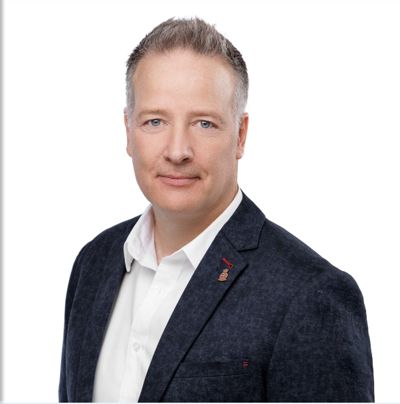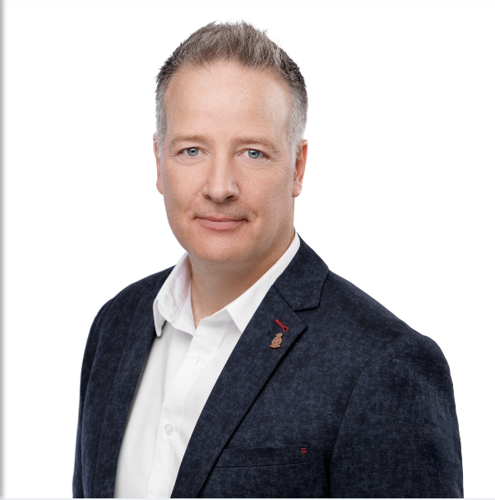It may have a new name but theresa╣·╝╩┤½├Į a familiar feel in the federal riding of sa╣·╝╩┤½├Į.╠²
The incumbent Conservative MP is facing a strong challenge from a Liberal candidate, with the regionsa╣·╝╩┤½├Į electoral history coming up in some ways against a strong desire for change.╠²
The challenger, now as in 2015, is Stephen Fuhr, a former RCAF pilot whose journey across the political spectrum from longtime Conservative to committed Liberal is celebrated by those on the centre-left.╠²
The incumbent in 2015 was Tory Ron Cannan, whoŌĆÖd won the riding in the three previous elections by wide margins. This time, itsa╣·╝╩┤½├Į Tracy Gray, former small business owner and sa╣·╝╩┤½├Į city councillor, who is seeking her third term in office.╠²
Fuhr defeated Cannan by seven percentage points 10 years ago, in an outcome that was perhaps less surprising than it seemed at the time, given the decades-long dominance of centre-right parties in sa╣·╝╩┤½├Į. Trudeaumania Version 2.0 was in full bloom, with many Canadians swooning over Liberal Leader Justin Trudeau just as the country had embraced his father Pierre in 1968.╠²
The Liberals won a majority government, electing MPs in many areas, such as sa╣·╝╩┤½├Į, that had long been a virtual wasteland for the party. But Fuhrsa╣·╝╩┤½├Į time in office was relegated to only one-term as Gray scored a decisive victory in 2019, with the Liberals losing many of those beachheads and being returned to power as a minority government.╠²
Fuhr did not try for a comeback in the snap 2021 election, called during the pandemic by the Liberals when they thought they might be returned to a majority government. Gray easily beat youngster Tim Krupa, with 45.3 per cent of the local vote to his 26.5 per cent, in line with what other Liberal candidates had won prior to Fuhr's victory in 2015.
A rematch between Gray and Fuhr was set last month when Fuhr was acclaimed as the Liberal contender for the riding, now known simply as ŌĆśsa╣·╝╩┤½├ĮŌĆÖ, rather than ŌĆśsa╣·╝╩┤½├Į-Lake CountryŌĆÖ.╠²
Under new Liberal Leader Mark Carney, the Liberals have soared in national opinion polls, to the point where they are currently forecast to win a majority government on April 28. But some new polls suggest a slight softening in Liberal support, and a slight rise in Tory fortunes.╠²
The polling aggregator calls the sa╣·╝╩┤½├Į riding a toss-up between the Conservatives and Liberals, though with perhaps a slight advantage to the Tories. The withdrawal from the race of right-wing People’s Party of Canada candidate Stacey Ponton could give a small boost to Gray’s vote totals, as the PPC won seven per cent of the local vote four years ago.
And in 2015, the local Greens did not field a candidate, working instead to help Fuhr get elected, based on Trudeausa╣·╝╩┤½├Į promise to introduce a system of proportional representation in Parliament. When Trudeau abandoned that promise, the Greens felt bitterly betrayed, and they are running a local candidate this time.╠²
Here are questions sent by the sa╣·╝╩┤½├Į Courier to Fuhr and his responses. He was given the opportunity to respond with answers of up to 150 words. As with other candidates, when significantly longer answers were provided, some editing was done.╠²
╠²
Q1: Why didnŌĆÖt you run for the Liberals in 2021 and what has prompted you to run again this time?
Fuhr:╠²In 2021, I stepped back to focus on family and private sector work, but a lot has changed since then. The threat of a second Trump presidency is real, and Canada needs steady hands at the table. I bring a proven track record in defence, business, and bipartisan leadership, along with a record of delivering real results for this community, including more than $160 million in federal funding during my time as MP. I believe Mark Carney is the right person to lead the country forward, and I am proud to stand with him. This is not a moment to sit on the sidelines. sa╣·╝╩┤½├Į and Canada need strong, capable representation in Parliament.
Q2: As a former RCAF pilot, why has the LiberalsŌĆÖ failure to hit NATOsa╣·╝╩┤½├Į target of 2 percent of GDP on defence spending not caused you to lose faith in them?
Fuhr: Because it is not just about hitting a number, it is about smart, strategic investment. Under the Liberals, defence spending has risen to 1.37 percent of GDP, up from under 1 percent at the end of the Harper years. No government has invested more in the Canadian Armed Forces than the Liberals have over the last ten years. Between funds already spent and those committed, we are recapitalising the entire militaryŌĆöfighter planes, maritime patrol aircraft, icebreakers, Canadian surface combatants, drones, surveillance airplanes, and more. Pay and benefits for military members have also increased significantly over the past decade. But given the new realities with the Americans and growing global instability, we need to move faster: recruit, equip, and build capability quickly. As someone who served, I know intent and execution matter more than optics, and I believe this leadership understands what is at stake.
Q3: Question for Stephen Fuhr: What are three things the Liberal government has done in the past six years that has disappointed you?
╠²
Fuhr: One area I believe we need to improve is military procurement. Despite record investments in the Canadian Armed Forces, we have not modernised the procurement process to match. I would recommend establishing a Minister of Military Procurement, under either Public Services and Procurement Canada or National Defence, to provide clear accountability and better outcomes.
Second, I think the government often struggled with messaging. Too much of the communication was aimed at those directly benefiting from a policyŌĆöpeople who usually understood it already. What was missing was clear messaging to those who were not on the receiving end, to help them see how these policies were designed to raise all ships.
Third, I was disappointed that despite my private membersa╣·╝╩┤½├Į motion, M177, passing unanimously in the House of Commons, very little tangible progress has been made to support flight schools and increase pilot production in Canada. The motion identified a serious and growing problem, and it received support across party lines. Yet the issue remains, and it is getting worse. We need to act before the shortage affects national readiness and economic growth.
Q4: What does sa╣·╝╩┤½├Į risk by electing Tracy Gray?
Fuhr:╠²I think that is a question best answered by looking at her record over the past six years. I am happy to speak to mine. During my time as MP, I helped facilitate more than $160 million in federal investment for sa╣·╝╩┤½├Į, plus an additional $24 million for the Rose Valley water treatment plant in West sa╣·╝╩┤½├Į. This is one of the fastest growing municipalities in the country, and it will need serious federal support to build out the infrastructure required for that growth. That is what I bring to the table: proven performance and a commitment to keep delivering.
Q5: Question for Stephen Fuhr: If you could ask Tracy Gray one question directly, what would it be?
Fuhr:╠²Rather than ask a question, I think it is worth reminding people what the job of a Member of Parliament actually is. An MP represents everyone in the community, not just the people who voted for them, and not just those who share their political views. They help constituents navigate federal issues like passports, pensions, veteransŌĆÖ benefits, and taxes. They bring federal resources to the riding and match those resources to local priorities.
It is also about being accessible and accountable, especially to the press, so people can stay informed and have confidence that their representative is working for them. That includes answering the tough questions, not just the ones you want to answer. This job is not about hiding, knocking on doors, or mailing out flyers. It is about showing up, serving everyone, and delivering real results. That is how I approached the role, and that is exactly what I would do again.
╠²
╠²



